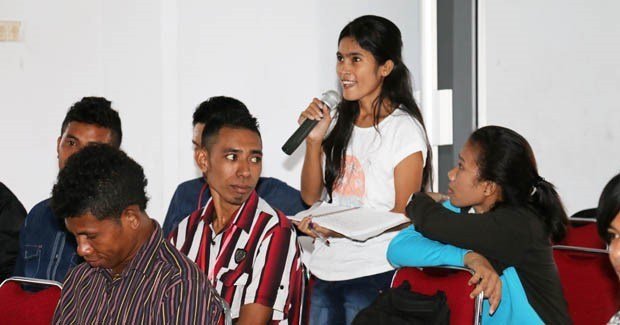
Civis 005/2016
Empowering the People to Build Political Lives
Knowing the change of paradigm in the external environment of the church and its implications, how ought the church respond to it?
With the aforementioned change of paradigm, empowering the people becomes very important. As a mediating structure, the church doesn’t have to scramble for seats in the government offices. Rather, it has to preserve its independence. But the church needs to empower its people to build moral political lives that align with the aspirations of this nation.
Johannes Leimena (1955) suggested that Christians inherently have dual citizenships, one as citizens of this world and another as citizens of God’s Kingdom. Therefore, in the context of empowering members of the congregation, the question is “how do we live as true Christians and responsible citizens?”
In order to play the role in empowering the people, the church can start with existing resources. In its function as a mediating structure that carries community values, the Bible is the principle source that serves as a life guide and the source from which the church should teach from.
In a Pancasila nation, every religious communities must contribute their own religious values into the moral foundation of this country. To Christians, these values are found in the Bible. Therefore, the church’s first response must be to train its people to understand the Bible and to apply biblical principles in their private and public life.
This response sounds pretty simple. However, through his ministry in various parts of the world, church figure John Stott often gets complaints from Christian leaders that they see a lot of “growth without depth” in churches.
Churches may increase their congregations in number but there’s a lack of guidance for them to grow in their understanding of the Bible. This realization pushed him to train pastor to improve the quality of their sermons. In his logic, churches grow through the Gospel, while members of the congregation mainly learns and hears the Gospel through the weekly sermons.
If the church’s first response refers to Johannes Leimena’s first question (“how do we live as true Christians”), how do we respond to the second question (“how do we live as responsible citizens”)?
The second response is that the church ought to push and facilitate its congregation to learn how to be responsible citizens. The church has a structure and system of management that can support this learning process. The church also has members of the congregation who are citizens that can be mobilized to learn how to be good citizens. The church’s role as a catalyst and a facilitator in this process is very important.
Political parties that are supposed to educate the public of political processes often become tools for the fight for political power. Therefore, the church, which infrastructures reach to the villages, ought to assist with the process of empowering the people. On the foundation of this thought process, the Leimena Institute cultivated a three-program series: Educating Citizens, Citizen Discussions, and Citizens’ Voice.

Matius Ho
Executive Director, the Leimena Institute
After completing his undergraduate and graduate studies at the University of Wisconsin, Madison (USA) and the London Institute for Contemporary Christianity (UK) in 1997, Matius Ho joined the Accenture, a multinational consulting firm, and developed IT infrastructure in telecommunication and retail industries in Indonesia and Singapore. Afterwards, he was appointed as a Director in a manufacturing and export company. He served as the Vice Secretary of the Akademi Leimena Foundation, a precursor of the Leimena Institute, before co-founding the Institute in 2005.
